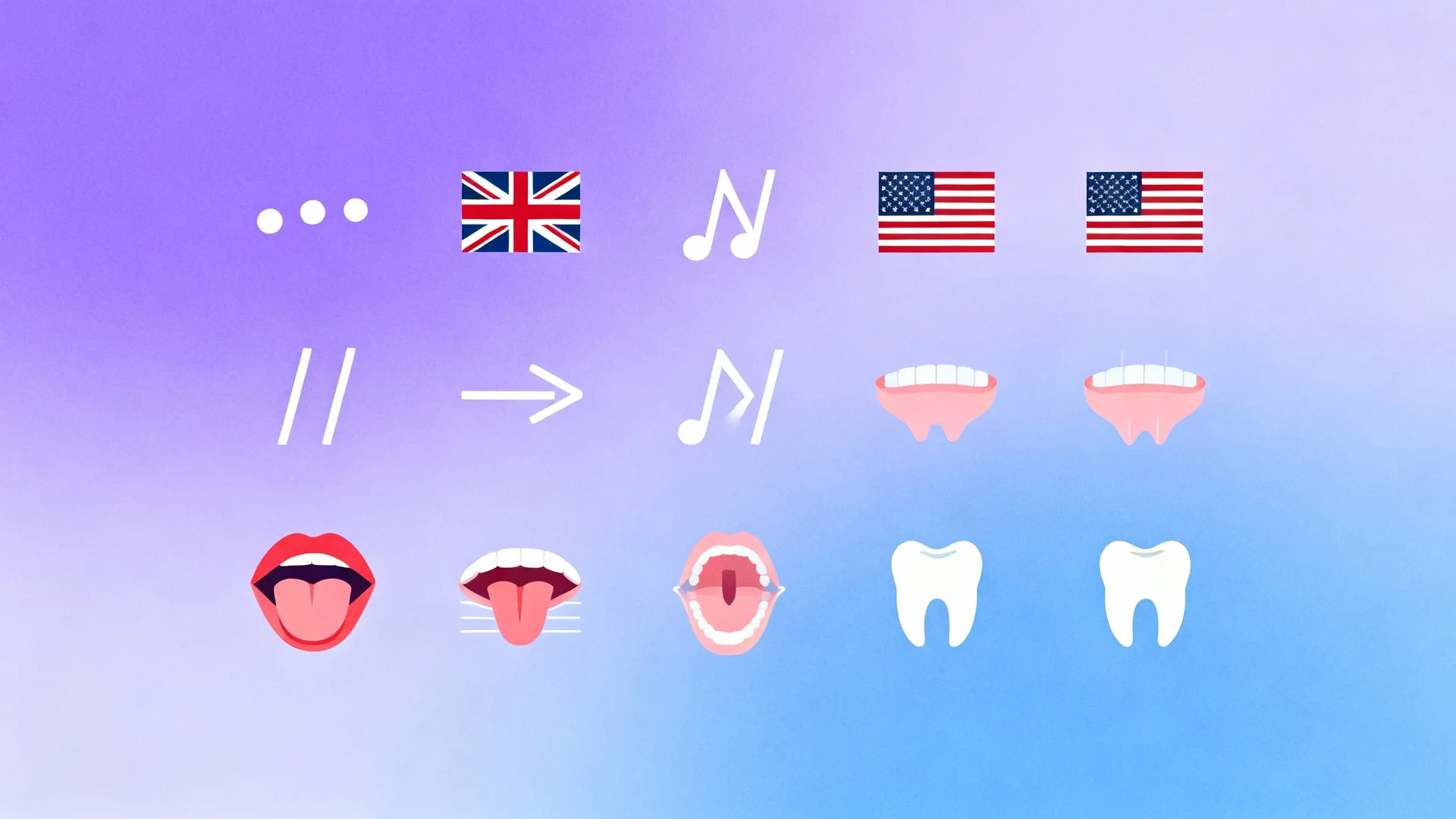
Loading...
Checking authentication...
Discover the most frequently mispronounced English words and learn the correct pronunciation for each with clear IPA notation and helpful tips.
Practice your pronunciation with interactive games and challenges.
Start PlayingEven advanced English learners (and some native speakers!) regularly mispronounce certain words. Here are the top 10 most commonly mispronounced words in English, with clear guidance on getting them right.
Common mistake: /ˈfɛbjuɛri/ ("Feb-you-airy")
Correct: /ˈfɛbruɛri/ ("Feb-roo-airy")
Why it's hard: The first R is often dropped in casual speech, but it should be pronounced in formal contexts.
Tip: Say "Feb-RU-ary" slowly, emphasizing both Rs, then speed up naturally.
Common mistake: /ˈlaɪbɛri/ ("lie-berry")
Correct: /ˈlaɪbrɛri/ ("lie-brerry")
Why it's hard: The first R gets dropped because it's awkward to say -brar-.
Tip: Break it into syllables: LI-BRA-RY. Don't let it become "liberty" without the T!
Common mistake: /mɪsˈtʃiviəs/ ("mis-CHEE-vee-us", 4 syllables)
Correct: /ˈmɪstʃɪvəs/ ("MIS-chiv-us", 3 syllables)
Why it's hard: The word looks like it should be 4 syllables, and many people add an extra "i" sound.
Tip: Remember: MIS-chi-vous (3 syllables), not MIS-chi-vi-ous (4 syllables).
Common mistake: /ˈnukjələr/ ("new-Q-ler")
Correct: /ˈnukliər/ ("NEW-clee-er")
Why it's hard: The -clear ending looks like it should rhyme with "nuclear," leading to the common "nucular" error.
Tip: Think "nucleus" + "-ar" = "nuclear." The CLE sound comes before AR.
Common mistake: /æks/ ("axe")
Correct: /æsk/ ("ask")
Why it's hard: In some dialects and languages, the SK cluster is difficult, leading to metathesis (swapping sounds).
Tip: Focus on /s/ before /k/: "ahhh-ssss-k." The S comes first.
Common mistake: /prəˈnaʊnsiˈeɪʃən/ ("pro-NOUN-see-ay-shun")
Correct: /prəˌnʌnsiˈeɪʃən/ ("pruh-nun-see-AY-shun")
Why it's hard: People base it on "pronounce" /prəˈnaʊns/, but the vowel changes in the noun form.
Tip: It's pro-NUN-ciation (like "nun"), not pro-NOUN-ciation.
Common mistake: /ɛkˈsprɛsoʊ/ ("ex-PRESS-o")
Correct: /ɛˈsprɛsoʊ/ ("es-PRESS-o")
Why it's hard: "Express" is a common English word, so people substitute it for the Italian "espresso."
Tip: No X! It's ES-presso (from Italian), not EX-presso.
Common mistake: /ˈʃɜːrbərt/ ("SHER-bert")
Correct: /ˈʃɜːrbət/ ("SHER-bet")
Why it's hard: The R before the B makes people want to add another R, making it "sherbert."
Tip: There's only one R in sherbet. It ends in -BET, not -BERT.
Common mistake: /kəmˈfɔːrtəbəl/ ("cum-FOR-ta-bull", 4 syllables)
Correct: /ˈkʌmftəbəl/ or /ˈkʌmfərtəbəl/ ("KUMF-ter-bull" or "KUMF-er-ta-bull", 3-4 syllables)
Why it's hard: The stress is wrong, and the word is often over-pronounced.
Tip: Stress the first syllable: COMF-ter-ble. Natural speech reduces it significantly.
Two acceptable pronunciations:
/ˈɔːfən/ ("OFF-en", T silent) - traditional
/ˈɔːftən/ ("OFF-ten", T pronounced) - increasingly common
Why it's confusing: Historically, the T was silent, but many speakers now pronounce it.
Tip: Both are correct! Choose based on your preference and region, but be consistent.
❌ /ˈɛpɪtoʊm/ ("EP-i-tome")
✅ /ɪˈpɪtəmi/ ("ih-PIT-uh-mee")
Cavalry (soldiers on horses): /ˈkævəlri/
Calvary (biblical location): /ˈkælvəri/
US: /nɪtʃ/ ("nitch")
UK: /niːʃ/ ("neesh")
US: /ˈskɛdʒuːl/ ("SKED-jool")
UK: /ˈʃɛdjuːl/ ("SHED-yool")
Record yourself saying each word, then compare with dictionary audio:
Use these words in sentences to practice natural pronunciation:
Count the syllables (don't add extra!):
English spelling is notoriously inconsistent. Words like "mischievous" look like they should have more syllables than they do.
Words like "library" and "February" have awkward consonant clusters that speakers simplify.
"Pronunciation" is mispronounced based on "pronounce," even though the vowel changes.
Some "mistakes" are actually acceptable regional variations (like "often" with or without the T).
Mispronouncing common words is normal—even native speakers do it! The key is awareness and practice. Focus on these top 10, check dictionary pronunciation for new words, and don't be afraid to ask how words are pronounced. Getting these common words right will significantly improve how polished and confident you sound in English.